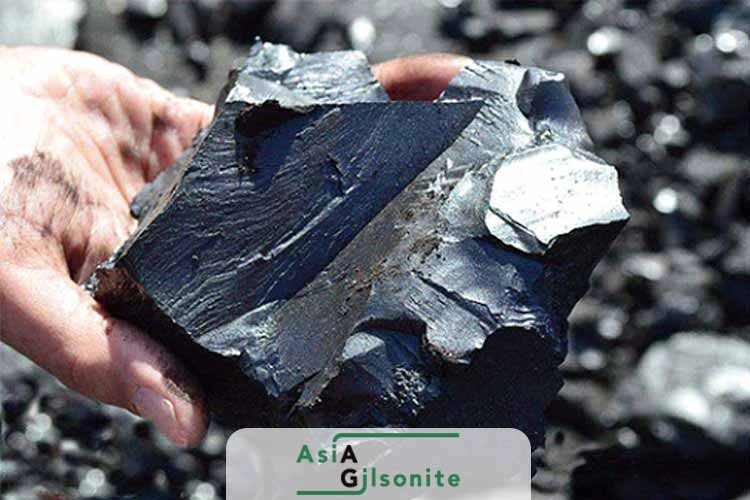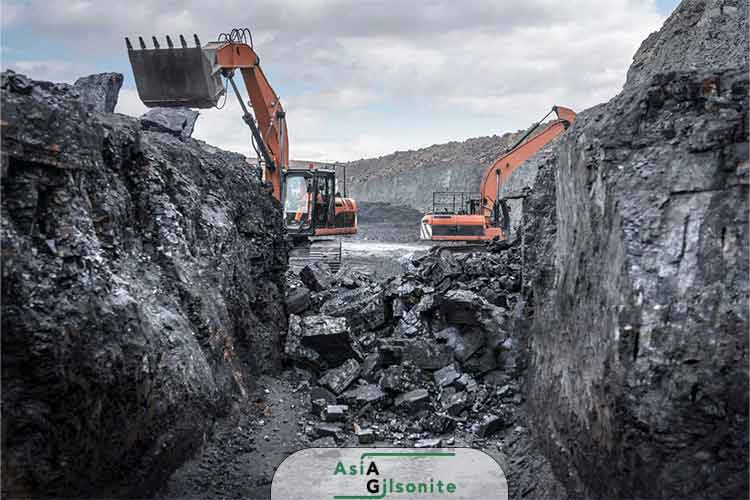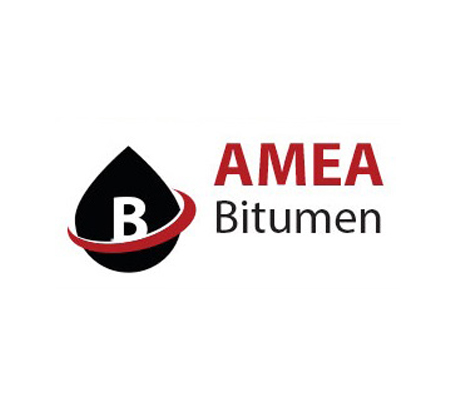The history of Gilsonite dates back to the early 1860s, but it was not used until 1880 that Samuel H. Gilson used it for coating timber to prevent water penetration, insulating cables, and in solvent oil. It was rare and unknown. After this period, the Natural Bitumen (Gilsonite) manufacturers started expanding.
Natural Bitumen (Gilsonite) is a solid, pure hydrocarbon with a softening point of 160 to 220 ° C Excavated from mines in locations that oil was hardened due to natural processes.
Because of Gilsonite oily feature, it is comparable to refined bitumen. Gilsonite is found in underground mines as black, hard materials with a glossy surface.
Gilsonite applications in Road Paving
Gilsonite is found in underground mines as dark, hard materials with a shiny surface. Because of the fragility of this material, it is regularly used in powder shape, which features a dark brown color.
Natural Bitumen (Gilsonite) Sellers produce a product that has many applications.
The various applications of this material can be mentioned below:
- Gilsonite is used in ink and powder printing industries
- Gilsonite is used in the paint industry
- Gilsonite is used as a penetrating mud and cement
- Gilsonite is used in asphalt paving and street construction
- Gilsonite is used as a sand additive
- Gilsonite is used in producing chemical products
- Gilsonite is used to improve bitumen quality
- Gilsonite is broadly used in the road pavement industry so the Natural Bitumen
Gilsonite manufacturer companies produce and export Natural Bitumen for above mentioned purposes. Gilsonite is the finest additive for asphalt and provides a huge enhancement of quality to the laid asphalt. Gilsonite is resistant to misshaping, resistant to climate change and it is resistant to water.
Gilsonite also has many advantages in pavement coatings. The use of Gilsonite in pavement covering has many advantages, which can be noted to increase its resistance to deformation. Economic advantages and cost reduction increased shear strength and fatigue resistance, increased road durability, compensated for poor design mix, and compensated for weak granulation have also made Gilsonite to be widely used and leads to Gilsonite presence in Road Paving.
Source of Gilsonite
Natural Bitumen (Gilsonite) is a natural resource and was first discovered in northeastern Utah the Bonita River. The material is the result of crude oil hardened due to natural elements during thousands of years.
While Gilsonite is forming, the vapors of light crude oil are evaporated during a long period of time and the material reacts with geographically presented materials such as sulfur and oxidants to get to its now know final shape which we call Gilsonite.
The Source of Gilsonite is from two places.
Gilsonite in lump shape
Gilsonite is excavated in lump shape shown in below image. The reason for this is that Gilsonite is shaped usually in limestone or sandstone environments in which crude oil penetrates and over time, volatiles evaporate and the rest is formed naturally. Natural Bitumen (Gilsonite) manufacturers excavate Gilsonite lumps from the mines and then pulverize it, pack it and export it. Today, in addition to road construction, natural bitumen is also used in various other applications.
Natural Bitumen exporter (Gilsonite Exporter)
There are not too many factories that treat Natural Bitumen (Gilsonite) in the world. The reason for this is that Gilsonite is not discovered in many countries and the main players are mostly from USA and Middle East. So the main Gilsonite (Natural Bitumen) producers are easily accessible through google search.
Gilsonite excavated in Middle East is usually exported to different countries in Jumbo bags or 25 KG laminated bags or bulk. Asia Gilsonite can supply Gilsonite to all over the world in various packaging methods. Many Natural Bitumen (Gilsonite) suppliers are having a special factory for pulverizing and packaging of the material. Factors affecting the price of exported Gilsonite include the price of crude oil, the price of the dollar, and the cost of packing Natural Bitumen. In recent years, the powder of this mineral is mostly exported to Malaysia, India, Germany, Ukraine, Turkey, and China.
It is assumed that around 20000 to 30000 tons of Gilsonite is produced and sold annually in the world.
To use Gilsonite in road pavement, the amount of ash is an important factor. The amount of ash in Gilsonite and the geographical elements will determine the final mixture percentage of Gilsonite with refined bitumen. Some tests show that after adding Gilsonite to asphalt mixture the overall resistance and life of the road pavement will increase significantly. That’s why Gilsonite is used in many highly strategic pavements such as airports around the world.





